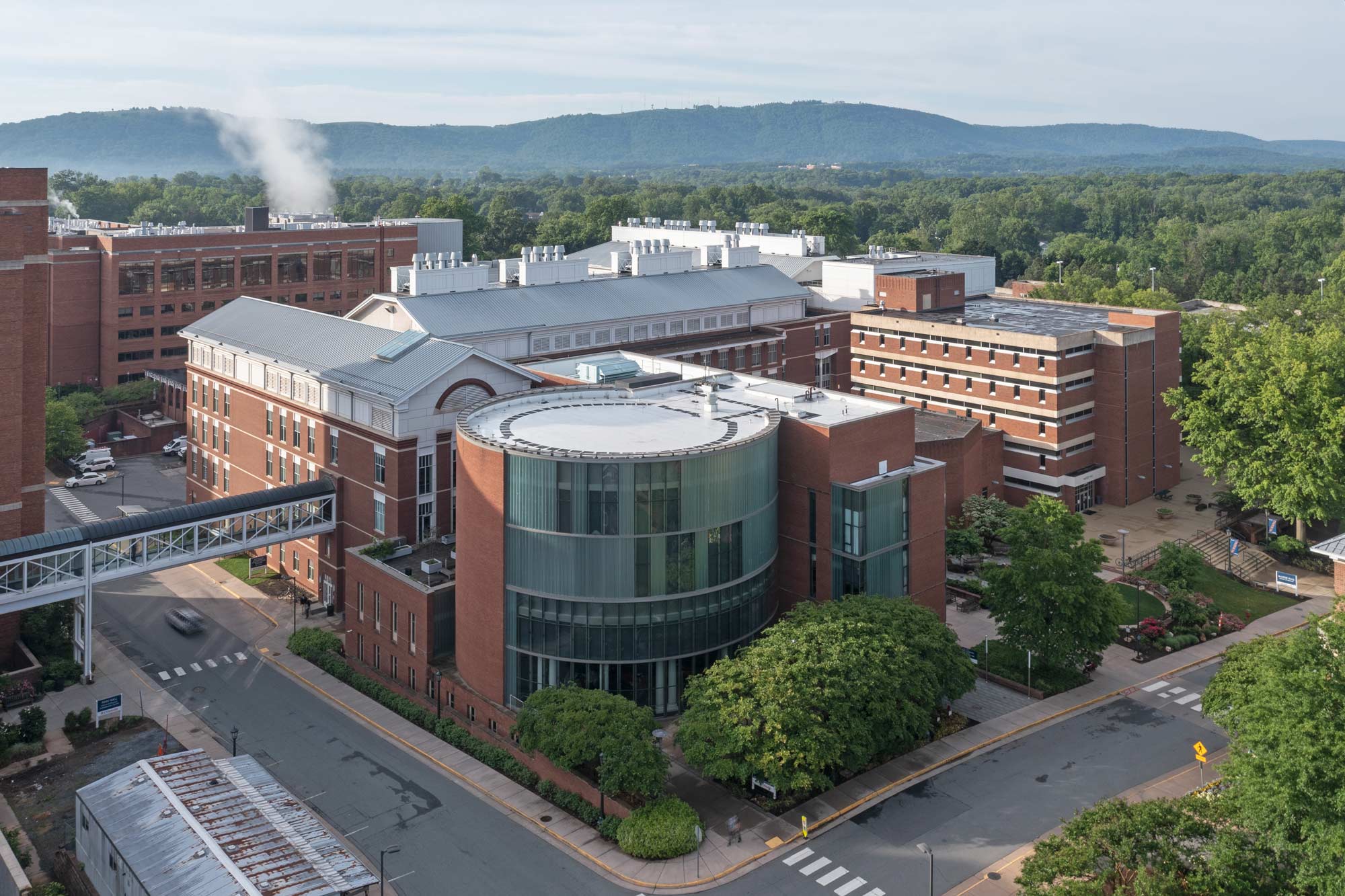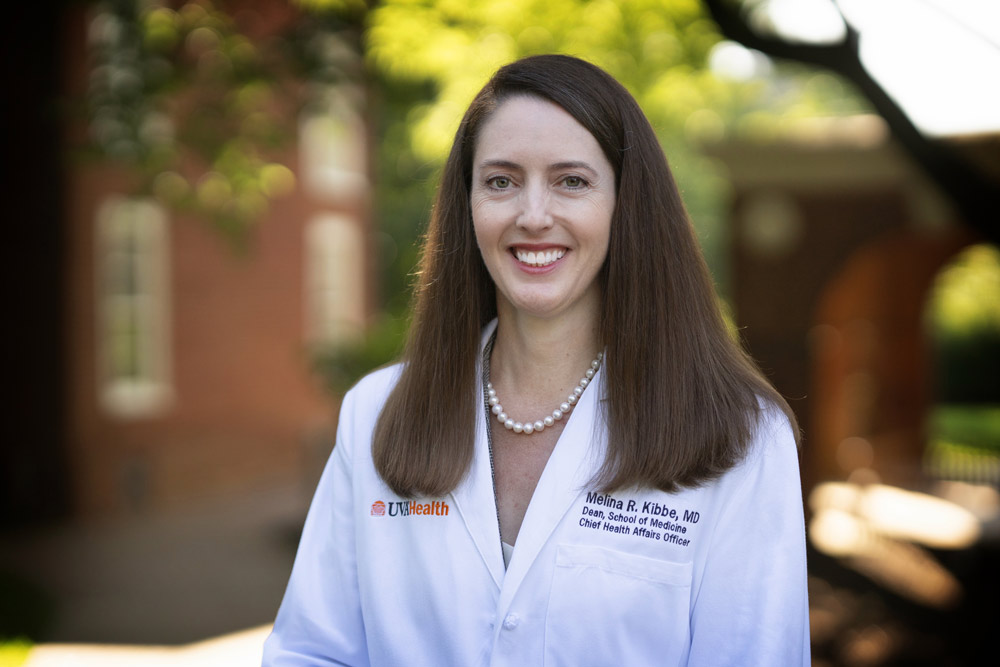
The National Institutes of Health increased funding for UVA's School of Medicine by nearly $20 million in 2023, putting it in the top 20 public schools for NIH support. (Photo by Sanjay Suchak, University Communications)
The National Institutes of Health increased funding for the University of Virginia's School of Medicine by nearly $20 million in 2023, helping the school's efforts at developing lifesaving treatments through innovative biomedical research, according to a recent report.
The School of Medicine's NIH funding increased from $155.1 million in 2022 to $174.2 million in 2023, according to the Blue Ridge Institute for Medical Research, a nonprofit that tracks NIH funding - often considered a major measuring stick for an institution's research activity.
The increase put UVA in the top 20 public schools for receiving NIH support, rising from 21st in 2022 to 19th in 2023. The funds boosted 11 School of Medicine departments' rankings in 2023.
A host of departments are highly ranked in their specialties, including three departments ranking in the top 10 of public medical schools. Biomedical Engineering is ranked No. 1; Molecular Physiology and Biological Physics is ranked No. 5; and Public Health Sciences is ranked No. 9.
Thirteen of the school's 28 departments rank among the top 20 public medical schools, and all eight research departments rank among the top 25 public medical schools.
"We are so proud of and thankful for our talented researchers who have expanded our research portfolio through their commitment to breakthrough discoveries that lead to innovative care for the patients we serve," Dr. Melina R. Kibbe, dean of the School of Medicine and chief health affairs officer for UVA Health, said. "This sets the stage for the continued expansion of our research enterprise, as outlined in our 10-year strategic plan, to help us better care for patients."

Dr. Melina R. Kibbe, dean of the School of Medicine and chief health affairs officer for UVA Health, says the funding will help expand research to better care for patients. (Photo by Dan Addison, University Communications)
A key pillar of the 10-year strategic plan is the Paul and Diane Manning Institute of Biotechnology, which will build on UVA's research in groundbreaking fields that include cellular therapy, gene therapy, nanotechnology and drug delivery.
UVA broke ground in December for the 350,000-square-foot institute at Fontaine Research Park, which is backed by a generous $100 million donation from philanthropists Paul and Diane Manning, $50 million from the Commonwealth of Virginia and $150 million from UVA.
Virginia Gov. Glenn Youngkin's proposed budget, currently under consideration by the General Assembly, contains an additional $55 million for the institute. The initial occupants of the institute are scheduled to move in by late 2026.
"The Paul and Diane Manning Institute of Biotechnology is the backbone of our plans to ensure our researchers have everything they need in the years ahead to build on their efforts to discover new treatments that will benefit patients across Virginia and beyond," Dr. K. Craig Kent, UVA Health's chief executive officer and UVA's executive vice president for health affairs, said.






